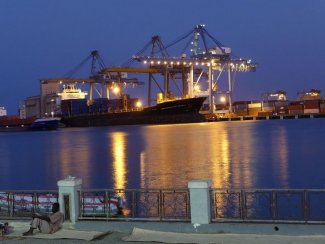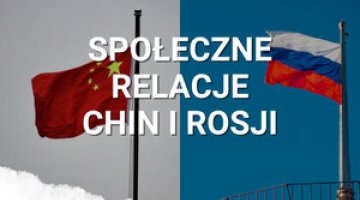Port Sudan: Russia’s window on Africa?

On 1 December, Russia signed an agreement with Sudan allowing it to create a repair and resupply naval facility in Port Sudan. It will have a full-time staff of no more than 300 and will be able to accommodate up to four Russian Navy warships at one time. The agreement assumes that the base will have an air defence and electronic warfare system. The base’s personnel and their family members are to enjoy diplomatic immunity, and its activities will not be subject to taxation and will be exempt from any customs duties. The import and export through Sudanese ports and airports of all goods ‘necessary for the operation of the base’, ‘the performance of tasks by Russian ships’ (including the import and export of armaments and military equipment) and the Russian contractors working there will not be subject to customs duties, and all means of transport will enjoy immunity, excluding checks, searches and coercive measures against them throughout the country. The agreement will also give Russia free access to Sudan’s airspace. Moscow will not pay for the use of the base, but it will provide weapons and special equipment on the basis of a separate agreement, and will assume a number of broadly formulated commitments related to ‘the provision of assistance’ to the development of Sudan’s armed forces, the air defence of Port Sudan, and securing Sudanese territorial waters against subversive underwater attacks, which assumes the support of Russian military intelligence. The agreement is intended to be valid for 25 years, and should be automatically extended for successive ten-year periods, unless one of the parties reports a desire to withdraw at least one year before its expiry.
Commentary
- The signing of the agreement should be seen in the context of Russia strengthening its political ties with the ruling military regime in Sudan, as well as the African strategy that the Kremlin has been implementing for several years – namely, the expansion of Russia’s political and economic presence in the countries of sub-Saharan Africa. Russia has provided the Sudanese authorities with a protective umbrella to shield them from Western pressure related to the regime’s violation of human rights, particularly in the context of its wars with rebel provinces. At the UN, Moscow (together with Beijing) has also blocked Western attempts to impose sanctions on the Sudanese authorities and introduce an embargo on the supply of arms to that country. The latter, in turn, has responded by voting in the United Nations in accordance with Russian interests (for example, concerning Syria or Ukraine) and formally recognising the annexation of Crimea. Khartoum is one of Moscow’s most important trading partners in sub-Saharan Africa: in 2018 the value of trade between them amounted to around US$500 million, which was almost exclusively made up of Russian exports to Sudan (the figure was reduced by about half in 2019, due to the internal crisis in Sudan). For comparison, turnover with South Africa, Russia’s largest trading partner in the region, amounts to US$1 billion annually.
- For 20 years, Russia has been the largest supplier of arms and military equipment to the Sudanese armed forces. It is estimated that during this period it has provided Sudan with weapons worth about US$1 billion, which is a significant amount for sub-Saharan Africa. Russian military instructors and advisers have also been operating there for 20 years, and the Sudanese forces’ officer classes are being trained in the Russian Federation. Since at least 2018, the private military company Wagner, owned by businessman Yevgeni Prigozhin, who is close to Putin, has had a presence in Sudan. The company protects the gold deposits exploited by Prigozhin’s companies (M Invest and its subsidiary Meroe Gold Co. Ltd., which were put under US sanctions in July 2020). In 2019 both countries signed an agreement on military cooperation and an agreement to establish a permanent representation of the Russian armed forces in Sudan. Since 2007, an agreement on the protection of classified information has also been in force.
- From a military-strategic point of view, having a Russian naval base in the Red Sea makes little sense. The Russian Navy does not maintain or need to maintain a permanent presence, either there or in the adjacent area of the Indian Ocean. The participation of Russian ships in anti-piracy activities has so far been fully secured by the Tartus base in Syria. The possibility that the Sudanese base could be used by nuclear-powered ships, as provided for in the agreement, is pure propaganda, as from an operational point of view there is no justification for the introduction of nuclear submarines or heavy nuclear missile cruisers into the closed area of the Red Sea. The opening of the base should be treated primarily as a political demonstration that the operational potential of the Russian fleet’s strike forces has expanded. However, it cannot be ruled out that, under the pretext of the presence of the nuclear-powered ships, Port Sudan will serve as a transfer point for elements of nuclear technology. The predicted deployment of radio-electronic warfare systems there, whose main task will be to jam foreign reconnaissance systems, indicates the intention to keep the base’s activity well hidden.
- The base should actually be seen as a reloading point for various types of goods and materials (including military ones) under Russian control. This is mainly indicated by the lack of any restrictions in the agreement on the movement of auxiliary units of the Russian Navy (only matters relating to combat vessels have been regulated), including cargo ships (the issue of civilian-flagged units entering the Russian base was also not discussed in any detail). This is particularly relevant in view of the announcement by Russia’s defence minister Sergei Shoigu on 4 December this year about the removal by May 2021 of ‘useless property’ from the arsenals and warehouses. It is likely that the agreement with Sudan is intended to facilitate the transfer of antiquated Soviet-era arms and military equipment to Africa.
- The agreement allows the Russian secret services to operate freely, due to the inclusion of the FSB and intelligence services among the ‘competent branches’ tasked with the base’s security. The unrestricted freedom granted Russia to use its own aviation and land transport indicates that the base will primarily be used to carry out special operations in countries bordering Sudan and to transfer the personnel of private Russian military companies. The base (and the associated opportunities for unmonitored land and air transport) can also be used as a transport corridor for Russian companies (including those belonging to Prigozhin) involved in the Central African Republic, which borders Sudan.
- Taking all the above circumstances into account, it should be assumed that the establishment of the base, beyond and above serving as a kind of symbolic gesture, is to provide protection to the friendly Sudanese regime from possible Western intervention while simultaneously serving as a source of illegal income for both the Russian defence ministry and ‘friendly’ private companies.




